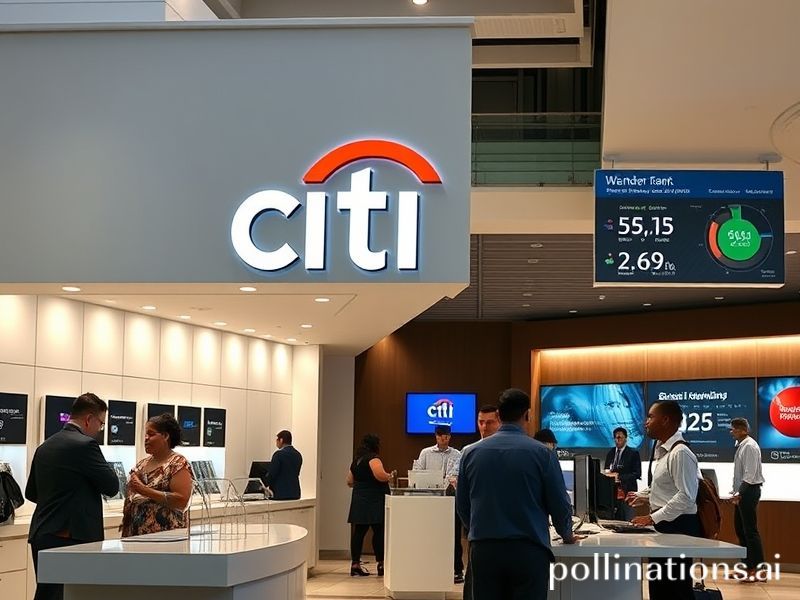Citibank’s $900 Million Blunder: The Internet’s Newest Obsession
# **Citibank: When Your Bank’s Blunder Becomes the Internet’s Newest Meme**
In the vast, unpredictable ocean of internet culture, a new wave has crashed onto the shores of our timelines: Citibank. But why, you ask, is a multinational banking corporation suddenly trending globally? Buckle up, because this story is a wild ride of blunders, memes, and the sheer power of the internet to turn even the most mundane financial news into a viral sensation.
## **The Blunder That Broke the Internet**
It all started with a simple, yet colossal mistake. Citibank, in a move that would later be dubbed “the mother of all banking blunders,” accidentally sent a $900 million payment to lenders of Revlon, a cosmetic giant. The payment was meant to be a mere $8 million, but thanks to a clerical error, the bank sent a whopping 112 times the intended amount. Cue the internet’s collective gasp and the inevitable memes.
The error was quickly corrected, but not before the internet had its fill of schadenfreude. Social media platforms erupted with jokes, memes, and hot takes, turning Citibank into an unlikely internet sensation. From Twitter threads dissecting the blunder to TikTok videos imagining the bank’s internal panic, the internet was in its element.
## **Cultural Context: The Internet’s Love Affair with Blunders**
This isn’t the first time a corporate blunder has captured the internet’s imagination. From the infamous “United Breaks Guitars” video to the “Pepsi vs. Kendall Jenner” debacle, the internet has a long-standing love affair with corporate mishaps. There’s something inherently satisfying about watching a giant corporation stumble, and Citibank’s blunder was no exception.
The internet’s reaction to Citibank’s error is a testament to the power of collective schadenfreude. In a world where corporations often seem untouchable, seeing one trip over its own feet is a rare moment of levity. It’s a reminder that even the biggest players can make mistakes, and the internet is always ready to pounce.
## **Social Impact: The Power of Viral Culture**
The Citibank blunder has had a ripple effect beyond just memes and jokes. It has sparked conversations about the importance of double-checking financial transactions, the role of human error in automated systems, and the potential consequences of such mistakes. It’s a stark reminder that even in our increasingly digital world, human oversight is still crucial.
Moreover, the blunder has highlighted the power of viral culture to shape public perception. In the span of a few days, Citibank went from being a relatively obscure banking corporation to a global trending topic. This shift in visibility has forced the company to address the issue publicly, a testament to the internet’s ability to hold corporations accountable.
## **Why This Topic Matters**
At its core, the Citibank blunder is more than just a funny meme. It’s a reflection of our times—a world where technology and human error collide, where corporations are under constant scrutiny, and where the internet holds immense power to shape narratives.
The Citibank trend is significant because it encapsulates the essence of internet culture: the ability to turn a mundane event into a global phenomenon, the collective joy in witnessing a blunder, and the power of viral culture to influence public discourse. It’s a reminder that in the digital age, nothing is ever truly off the radar, and every mistake, no matter how small, has the potential to go viral.
So, as we continue to laugh at the memes and share the jokes, let’s also take a moment to appreciate the cultural significance of the Citibank blunder. It’s a testament to the power of the internet, the fallibility of corporations, and the sheer unpredictability of viral culture.







